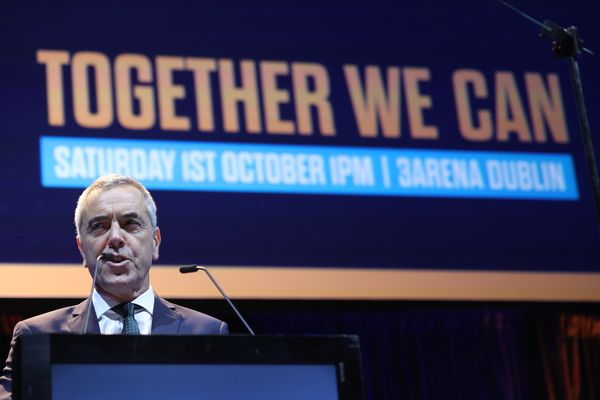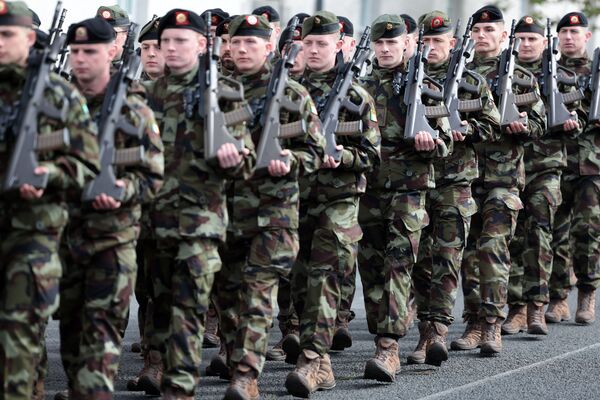To say that we should prepare for a new Ireland in advance of a border poll is to state the bleedin’ obvious. Those who claim it would cause division are like a family which knows it will probably move to a new home fifty miles down the road soon, but never mention the move in case it might upset the children.
Brexit has brought us many disasters but one valuable lesson: if you buy a pig in a poke, you shouldn’t be surprised when the pig’s damp snout and unbearable stench emerge.
This is a far-from-unlikely scenario. If unionists want no hand, act or part in our vision of a new Ireland, what are we to do? Simple: we go on without them. We devise our different models, we opt for one, we head to the border poll and cast our votes.
So far, so obvious. Fail to prepare, prepare to fail. But there are those who have doubts about a citizens’ assembly or any other group laying out the blueprint of a reunited Ireland. Is that really democratic? We’ve thought and planned it all out, so here’s what you’ll be getting, now read through it and get down to the voting centre. This is wrong, some would argue. What we should be doing is asking people what is their vision of a united Ireland, allowing them to lay out their notion of what it should look like.
This bottom-up approach has much to be said for it. With the best will in the world, political leaders can sometimes take it on themselves to tell us what we need. Dev, when he wanted to know what the Irish people were thinking, would go off and look in his own heart. However wise the leader, our modern democratic instincts rebel against such a strategy.
But it doesn’t have to be one or the other. We don’t have to have the blueprint constructed by a small group and then presented to the rest of us. Nor need we go the other way round – allowing the people to start from Ground Zero and build competing models of our new country. That’d be to construct a political Tower of Babel.
Try this comparison. When we go for our weekly grocery shop, what do we see? Aisles loaded with goods, ready to be picked out and added to our trolley. In other words, the supermarket people have done a lot of thinking and research and they figure this is the range of goods we’d be interested in selecting from. In turn, we decide on what products we’ll bring to the check-out. Nobody expects us to start at Shopping Ground Zero: the supermarket has unearthed a range of possibilities and from this range we can freely choose.
The Union is not benefiting us. A United Ireland in the EU will.#NIprotocol #Brexit #NIcensus #AE22 #AE22b @StephenNolan pic.twitter.com/ym6zWYN1Le
— Paddy Toland (@paddytoland) November 28, 2022
Arguably it should be the same in politics. Political leaders should provide us with a range of possibilities, and from this range we decide which is best suited as the border poll model.
But what about unionists? There are hundreds, thousands of our fellow countrymen and women who want no part in putting forward their conception of a new Ireland. It’s no good asking them 'What sort of united Ireland would you like?' because the answer will probably be 'None of the above.'
This is a far-from-unlikely scenario. If unionists want no hand, act or part in our vision of a new Ireland, what are we to do? Simple: we go on without them. We devise our different models, we opt for one, we head to the border poll and cast our votes.
It was a pleasure to meet @theSNP President Michael Russell @Feorlean at this week’s @IrelandsFuture event in the Ulster Hall. We live in interesting times. pic.twitter.com/lbYP62IYlU
— Patricia MacBride (@IRLPatricia) November 27, 2022
And then? Well, if the prospect of being hanged in the morning concentrates the mind wonderfully, it’s not unreasonable to expect that the prospect of being a citizen in a new Ireland will galvanise unionists into participation. Those who said 'Never! Never!' will realise that if they don’t argue for what they want in the new state there’s a danger they’ll get what they don’t want.
Finally, a word of caution. Plans have an awkward habit of altering somewhat on contact with the real world. It is vital that we plan in advance for a border poll, but we’d be foolish to think that the reality of a new Ireland will reflect in every detail what we’d planned. Future events have a habit of paying only limited attention to our attempts to shape them.








